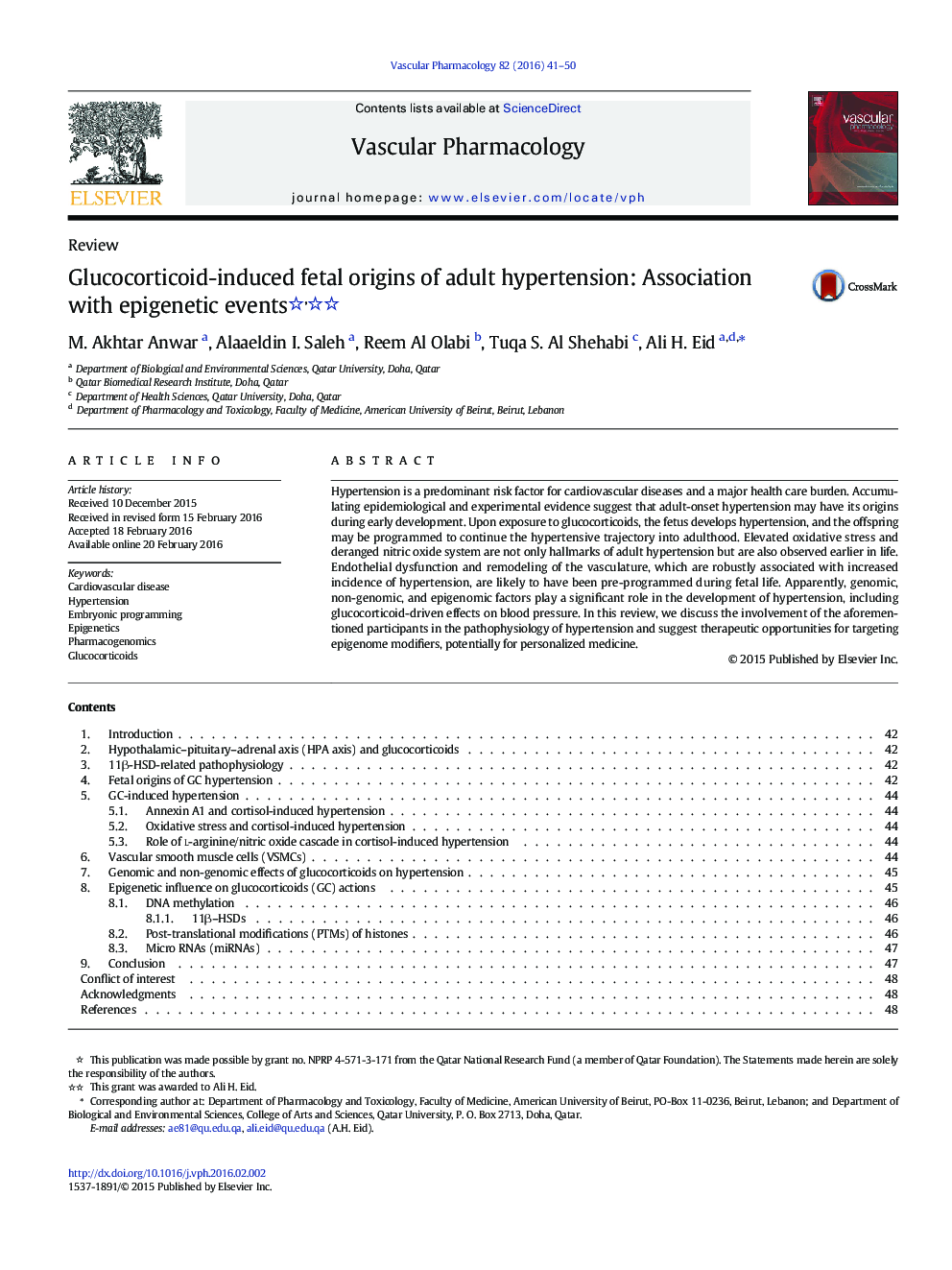| Article ID | Journal | Published Year | Pages | File Type |
|---|---|---|---|---|
| 2573915 | Vascular Pharmacology | 2016 | 10 Pages |
Hypertension is a predominant risk factor for cardiovascular diseases and a major health care burden. Accumulating epidemiological and experimental evidence suggest that adult-onset hypertension may have its origins during early development. Upon exposure to glucocorticoids, the fetus develops hypertension, and the offspring may be programmed to continue the hypertensive trajectory into adulthood. Elevated oxidative stress and deranged nitric oxide system are not only hallmarks of adult hypertension but are also observed earlier in life. Endothelial dysfunction and remodeling of the vasculature, which are robustly associated with increased incidence of hypertension, are likely to have been pre-programmed during fetal life. Apparently, genomic, non-genomic, and epigenomic factors play a significant role in the development of hypertension, including glucocorticoid-driven effects on blood pressure. In this review, we discuss the involvement of the aforementioned participants in the pathophysiology of hypertension and suggest therapeutic opportunities for targeting epigenome modifiers, potentially for personalized medicine.
Graphical abstractFigure optionsDownload full-size imageDownload high-quality image (44 K)Download as PowerPoint slide
